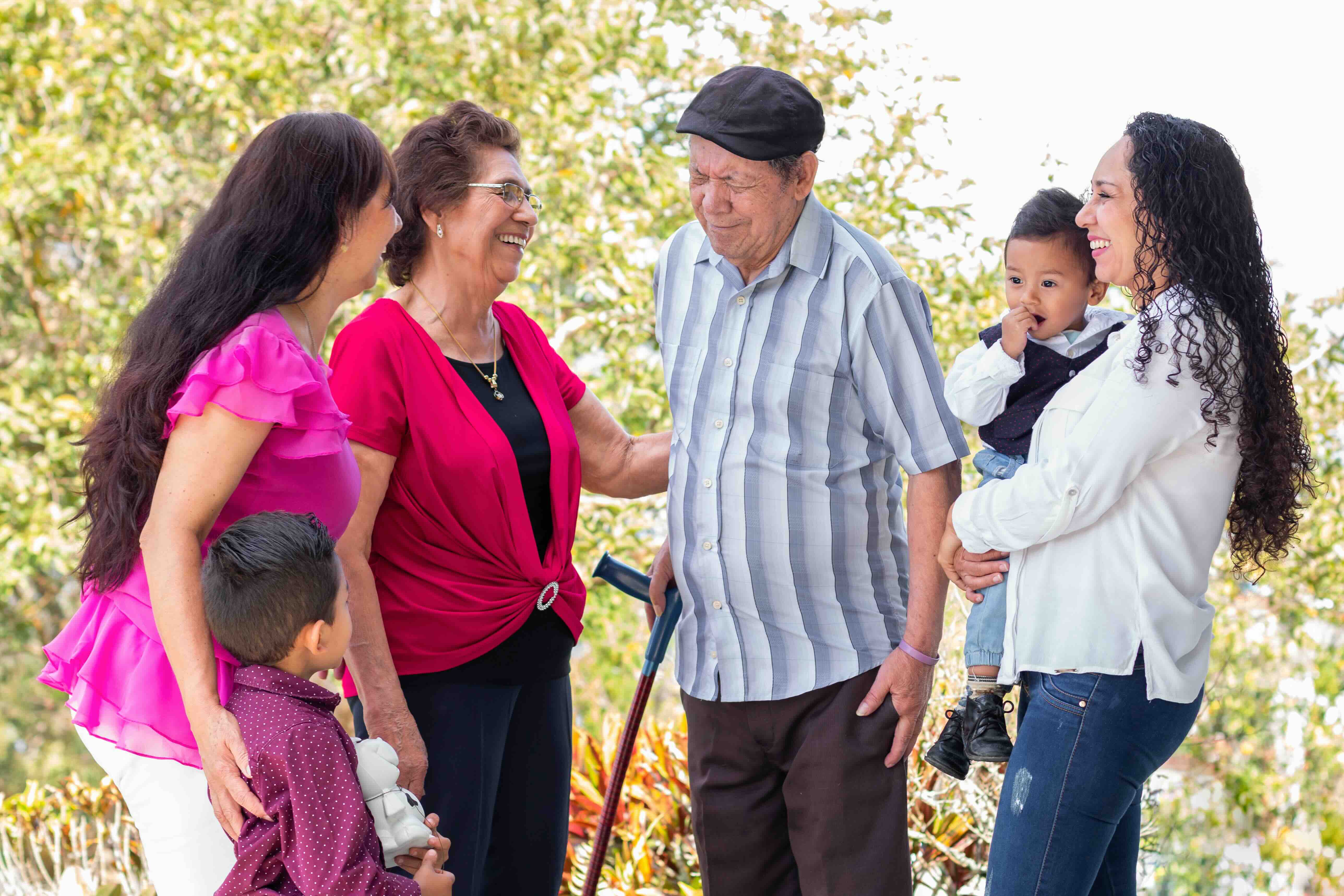Caregiver Meaning: You Might Be a Caregiver If…

Many people don’t realize they’re caregivers until someone points it out. You might already be one if you’re cooking meals for an aging parent, checking in on a neighbor after surgery, or helping a spouse manage medications. The caregiver meaning extends far beyond professional roles; it’s often hidden in the everyday ways we show up for others.
You might already be a caregiver if you’re caring for someone in your family or community. Let’s explore what this means, who falls under this role, and why so many people don’t realize the vital care they provide each day.
Caregiver Meaning – What Does It Really Mean?
At its core, what is a caregiver? A caregiver is someone who provides support to another person who can’t fully care for themselves. When we define caregiver, it includes both practical tasks, like cooking, bathing assistance, or transportation, and emotional support such as companionship and reassurance.
The caregiver meaning goes beyond just physical duties. It’s about being present, dependable, and attentive to another person’s needs. Caregivers often balance medical responsibilities with emotional encouragement, making them an essential part of someone’s daily life.
According to the AARP Caregiving in the U.S. 2025 report, more than 63 million Americans provide unpaid care to adults or children. That means roughly one in five adults in the U.S. is already a caregiver, often without identifying as one. We’ll be referencing this report a lot in this blog, as it unveils the realities of caregiving you may not expect.
Who is a caregiver?
Many people ask, who is a caregiver? The truth is, there isn’t just one kind. Caregivers can be family members, friends, or professionals who step in to support someone who needs extra help.
For example, an elderly caregiver might help a parent with mobility issues, while another person may support a sibling living with a chronic illness. Even friends who provide rides to doctor’s appointments or cook meals during recovery are caregivers. The role is diverse and deeply personal, shaped by the relationship and the needs of the person receiving care.
AARP notes that family caregivers often spend an average of 18 hours per week providing care, though many provide far more. This shows how caregiving can become a part-time job without people realizing it.
Caretaker vs Caregiver – What’s the Difference?
The terms are often mixed up, but caretaker vs caregiver has a subtle distinction. A caretaker usually refers to someone who looks after property or possessions, such as a building or land. A caregiver, on the other hand, focuses on people: their health, comfort, and daily living.
While both roles involve responsibility, the emotional investment in caregiving sets it apart. Caregivers bring empathy and human connection into their role, which makes their impact profoundly personal.
What do caregivers do?
So, what do caregivers do? The answer depends on the unique needs of the person they support. The list of caregiver duties can be broad, spanning everything from medical tasks to companionship. Caregiving is rarely one-size-fits-all, and many caregivers blend different types of responsibilities into their daily routine.
Emotional Support & Companionship
Caregivers often provide a listening ear, emotional reassurance, and companionship. This emotional connection helps reduce feelings of isolation for the person receiving care.
It can mean watching a favorite TV show together, sharing meals, or simply being present during tough times. AARP reports that nearly 70% of caregivers provide this kind of emotional support regularly, which highlights how central it is to caregiving.
Medical & Physical Care Tasks
Many caregivers assist with medications, doctor visits, mobility, or even wound care. These tasks require patience and attention to detail, as they directly affect a person’s health.
Caregivers may track prescriptions, coordinate with healthcare professionals, or help with exercises recommended by a therapist. In some cases, they monitor symptoms and act quickly when changes occur, bridging the gap between the person receiving care and medical providers.
Household & Daily Living Assistance
From cooking meals to cleaning the house or running errands, caregivers often handle daily responsibilities to make life easier for their loved ones. This kind of caring for someone ensures stability and comfort in their home. Grocery shopping, paying bills, and organizing household tasks also often fall under a caregiver’s role, creating a safer and more manageable environment for the care recipient.

Advocacy & Coordination
Caregivers also act as advocates, ensuring that the person in their care receives the right services and treatment. They may coordinate appointments, manage insurance paperwork, and communicate across multiple healthcare providers. According to AARP, nearly half of caregivers report that they help navigate the healthcare system, a responsibility that can be time-consuming but vital.
Social & Community Engagement
Helping loved ones remain socially active is another important role. Caregivers might arrange visits with friends, encourage participation in community programs, or use technology to keep connections alive. Social engagement reduces loneliness and can improve mental health outcomes, making this an often-overlooked but powerful part of caregiving.
The AARP report highlights that six in ten caregivers help with at least one activity of daily living, such as bathing, dressing, or mobility. Many also provide what are called instrumental activities of daily living (IADLs), such as managing finances, arranging transportation, or overseeing household chores. Together, these efforts show just how vital caregivers are in maintaining independence and dignity for their loved ones.
The Hidden Caregivers – Signs You Might Be One
This is where things get interesting; many people don’t even realize they’re caregivers. The caregiver meaning isn’t limited to those with a formal title or paycheck. If you are consistently stepping in to support someone else’s well-being, you may already be part of this vital group.
For example, maybe you manage a parent’s medications or take them to medical appointments. You might prepare meals for a neighbor who struggles with mobility or check in daily with a friend recovering from surgery. Each of these acts counts as caregiving.
Other situations can be even less noticeable. You may be the sibling who regularly helps with homework and meals for a brother or sister with special needs. You might be the adult child who calls a parent every evening to make sure they remembered to eat dinner or lock the doors. Even organizing a neighbor’s mail, shoveling their driveway because of mobility issues, or setting up technology so a loved one can video chat with family are all forms of caregiving.
Another sign you might be a hidden caregiver is when your daily routine has shifted around someone else’s needs. If you rearrange work hours to drive a loved one to therapy, adjust your finances to help cover someone’s medications, or skip social plans because someone relies on you at home, you’re already living the role of a caregiver. These hidden efforts often go unnoticed, but they are a powerful expression of love and responsibility.
AARP’s Caregiving report found that nearly 40% of caregivers consider their role highly stressful, and almost one in three report feeling unsupported. Recognizing these hidden roles matters because it empowers you to seek help, access resources, and prevent caregiver burnout.
The Importance of Caregivers in Society
Caregivers play a critical role not just in individual lives, but in society as a whole. Families depend on them to keep loved ones safe and supported. Healthcare systems rely on them to reduce strain on hospitals and long-term care facilities. Communities benefit from their quiet acts of service.
As populations age and more people live with chronic conditions, the demand for caregivers will only increase. Recognizing the caregiver meaning helps highlight the value of their contributions and the need for better support systems.
According to AARP, caregivers provided an estimated 36 billion hours of unpaid care in 2024. The economic value of this care is staggering, showing how much society depends on their contributions.
Challenges and Rewards of Being a Caregiver
Being a caregiver is both deeply rewarding and undeniably challenging. Caregivers often face stress, exhaustion, and emotional strain from balancing responsibilities. Burnout is a real risk when caregiving stretches on without adequate rest or help.
At the same time, caregiving can bring incredible rewards. It fosters connection, strengthens bonds, and provides a profound sense of purpose. Many caregivers find meaning in knowing their efforts directly improve someone’s quality of life. The report states that more than half of caregivers say that their role gives them a sense of purpose, and this sense is even stronger among Hispanic/Latino caregivers, lower-income caregivers, and those caring for nonrelatives.
Support and Resources for Caregivers
If you’ve realized you’re a caregiver, whether formally or as a hidden one, it’s important to remember that you don’t have to do it all alone. Support networks, local organizations, and caregiver-focused tools can lighten the load. Apps like Caily offer ways to stay organized, share responsibilities with family, and ensure no task gets overlooked.
Other resources include national caregiver hotlines, local respite care services, and support groups where you can connect with people who understand what you’re going through. Taking care of yourself is just as important as taking care of someone else.
Embracing the caregiver meaning is about recognizing your role, valuing your contribution, and finding strength in the community of caregivers around you. Whether you’ve chosen this role or simply stepped into it out of love, your efforts matter more than you may realize.
Frequently Asked Questions About Caregiver Meaning
What is a caregiver?
A caregiver is someone who provides physical, emotional, or practical support to another person, often a loved one, who cannot fully care for themselves due to age, illness, or disability.
How to become a caregiver?
You can become a caregiver by starting informally (caring for a loved one) or professionally through training, certifications, or working with an agency. The path depends on whether you want to provide family caregiving or pursue caregiving as a career.
What do caregivers do?
Caregivers assist with daily activities such as cooking, cleaning, transportation, personal hygiene, medication management, and providing companionship. Their role varies depending on the needs of the person they’re caring for.

Get Started Now
Enjoy full access to everything Caily offers, from medication tracking to shared schedules and daily check-ins. See how much easier caregiving can be when everything is coordinated in one place.
Start your free trial
